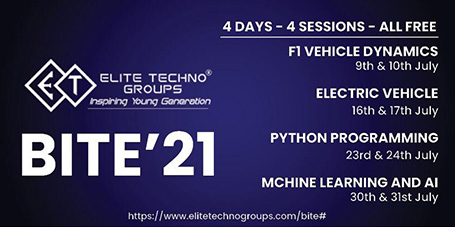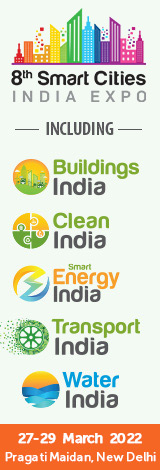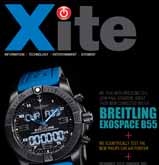|
|
|
|
|
|
G&D Supplies Vodafone Germany with SIM Card-Based System for Mobile Communication Encryption
11 March 2014
Vodafone Germany is the first telecommunications group to offer its corporate and public sector customers SIM card based end-to-end encryption for their mobile communication. Giesecke & Devrient (G&D), an international leader in mobile security solutions, developed the product in collaboration with Düsseldorf-based network operator Vodafone. Secure SIM Data encrypts and signs emails, documents, data carriers, and VPN connections.
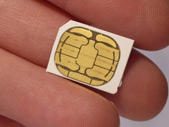 This is the second product for securing mobile communication that Vodafone has brought out in collaboration with its security partner G&D. The existing solution has been providing Vodafone customers with secure login access to corporate networks and the data cloud for some time now – there, too, G&D’s latest SIM technology provided the key. This is the second product for securing mobile communication that Vodafone has brought out in collaboration with its security partner G&D. The existing solution has been providing Vodafone customers with secure login access to corporate networks and the data cloud for some time now – there, too, G&D’s latest SIM technology provided the key.
As mobile working becomes more common, companies are increasingly forced to find more effective ways to protect sensitive data. Solutions are called for that can be implemented on different devices simply and flexibly. Vodafone is now offering a standardized, flexible and above all cost-efficient product for daily use that is based on G&D technology.
“We created Vodafone Secure SIM Data as a simple, cost-efficient and above all secure value-added service based on the Vodafone SIM card for the telecommunications group’s corporate customers. It regulates access to sensitive data while also protecting mobile data communication effectively against attack,” says Carsten Ahrens, Group Senior Vice President, Server Software and Services (3S) division.
Unlike the majority of products that are already available, this solution does not require users to possess separate smartcards or security tokens. The digital private key and corresponding certificates are securely stored on the SIM in the user’s notebook or tablet, eliminating the need for additional hardware such as card readers etc. Vodafone is presenting the solution for the first time at this year’s CeBIT trade show in Hannover, where it will be demonstrated using a Windows 8-based standard Lenovo notebook.
Secure SIM Data encrypts emails and documents in such a way that they are unreadable to unauthorized third parties. The customer simply enters a PIN in order to encrypt and add a signature as well as to decrypt their communication. The solution uses the widespread S/MIME encryption program for email exchanges, and in the future, encryption via PGP will also be possible. Users also have the option to authenticate emails in order to verify origins and that email content remains unaltered.
Besides electronic data traffic, the solution can also be used to encrypt storage media such as USB sticks or hard drives. This ensures, for instance, that a sales representative’s confidential contract paperwork remains protected against unauthorized access even in the event of theft or loss of the notebook. (Source: Convergence Plus)
|
Samsung Galaxy S III mini Value Edition with Android 4.2 now available online
11 March 2014
Samsung has been famous for launching its flagship smartphones in a number of variants. Continuing the tradition, the South Korean manufacturer looks all set to release the Galaxy S III mini Value Edition, which is a compact variant of the 2012 flagship smartphone, the Galaxy S III.
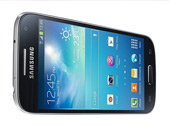 The Samsung Galaxy S III mini Value Edition is now listed as available in Netherlands at various online merchants for EUR 180, which translates to roughly Rs. 15,300. The phone is however, not listed on Samsung's official Dutch site. The Samsung Galaxy S III mini Value Edition is now listed as available in Netherlands at various online merchants for EUR 180, which translates to roughly Rs. 15,300. The phone is however, not listed on Samsung's official Dutch site.
The smartphone was first spotted by Gsminfo which claims that the Galaxy S III mini Value Edition features upgraded innards, when compared to the Galaxy S III mini that was launched in October 2012.
The Galaxy S III mini Value Edition runs Android 4.2 Jelly Bean out-of-the-box, whereas the Galaxy S III mini was based on Android 4.1.
The Galaxy S III mini Value Edition, much like its sibling, comes with a 4-inch display with a resolution of 480x800 (WVGA) pixels. It is powered by a 1.2GHz dual-core Cortex A9 (unspecified chipset) processor, alongside 1GB of RAM.
The smartphone sports a 5-megapixel rear camera and also houses a VGA front-facing camera. The Galaxy S III mini Value Edition includes 8GB of built-in storage, which can be expanded up to 32GB via microSD card.
Samsung recently announced faux-leather cover variants of the Galaxy S4. The company officially announced the Black Editions of the Samsung Galaxy S4 and Galaxy S4 mini. The South Korean giant also revealed that the faux-leather coating seen on the Black Edition's back panel would also arrive in White, enabling more colour combinations - Rose Gold White, Rose Gold Black, and Deep Black.
These new back panels for Samsung Galaxy S4, sport a faux-leather texture instead the original plastic sported by the handset when it was released last year. The faux-leather design comes from the company's Galaxy Note 3 and Galaxy Note 3 Neo phablets, and has also been seen in the Galaxy Grand 2 previously. (Source: NDTV Gadgets)
|
There is no burning need for 4G in India: Vodafone technology head
11 March 2014
While lack of spectrum is often cited as the reason for poor service quality by telecom operators, Vodafone India's director of technology, Vishant Vora, says radiation norms and the paranoia around it is also taking a toll. Excerpts:
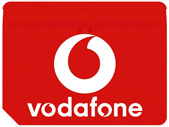 There are regular complaints about call drops. Continuous 3G connectivity is still an issue, years after launch, even in top-tier cities like Bangalore and Hyderabad. Why is this so? Bangalore and Hyderabad are particular cases where we don't have spectrum and are using Airtel's network on an intra-circle roaming mechanism. That is why we took additional spectrum in 1800MHz in Bangalore in the latest auction. There are regular complaints about call drops. Continuous 3G connectivity is still an issue, years after launch, even in top-tier cities like Bangalore and Hyderabad. Why is this so? Bangalore and Hyderabad are particular cases where we don't have spectrum and are using Airtel's network on an intra-circle roaming mechanism. That is why we took additional spectrum in 1800MHz in Bangalore in the latest auction.
In general, networks are under tremendous stress due to intense pressure on pricing, which limits our capital expenditure, the lack of spectrum and also paranoia surrounding radiation, which has created gaps in networks. Our 3G network handles several petabytes of data per month (1 petabyte = 1 million gigabytes) while 2G network is loaded with voice traffic.
Spectrum is a major issue and if government doesn't make access to spectrum easier, it will lead to worse quality. Low average revenue per user (ARPU) combined with high spectrum costs mean that many other operators in India are just bleeding. It's a case of how long they can bleed.
What do you think about radiation norms in India? How has it affected network coverage?
Our radiation limits are 10 times stricter than many developed countries. Due to the paranoia around radiation, we had to remove hundreds of base stations especially in major cities like Delhi, Mumbai, Bangalore and Hyderabad. We have lost coverage in many areas and it's hard to get in sites at newer locations. In effect, it has degraded the quality of service for consumers.
Given these conditions, what is Vodafone doing to improve network performance? There are some mitigating factors like setting up small cell base stations. But you need many of them and that implies more permissions are needed from state and local authorities. Many states and cities have made it extremely hard to set up base stations. Getting Right of Way (RoW) clearance is difficult and many municipalities have asked for exorbitant prices which renders these cities non-viable for such plans.
We want to lay fibre but cities like Bangalore have a moratorium on laying fibre. Even in places where we have fibre, there are cuts due to uncontrolled construction. Last year, we replaced around 1,000km of fibre as it became unusable due to cuts.
Has the growth of 3G played out according to your expectations? At a time when both 2G and 3G are growing, where does 4G fit in?
3G start was slow but it has really picked up in the last year or two. Cost of devices was a major issue but that is getting solved. Also, it is worth noting that data is not a 3G phenomenon alone with almost 50%-60% yearly growth of data on the 2G side.
There is no burning need for 4G. 3G is sufficient for today's market. Customers want a good experience and don't really care for 3G or 4G. However, we are studying 4G and assessing best places to set up networks when the time comes.( Source: Times of India)
|
GSMA Mobile World Congress 2014 Shatters Previous Records
11 March 2014
The GSMA today reported that more than 85,000* visitors from 201 countries attended the 2014 Mobile World Congress, setting another new record for the mobile industry's premier event. In addition to the more than 80,000 attendees at Mobile World Congress at Fira Gran Via, more than 5,000 people participated in a range of partner programmes at Fira Montjuic.
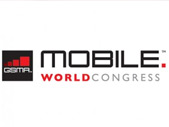 "By any measure, the 2014 Mobile World Congress was a stunning success and we thank our attendees, exhibitors, sponsors and partners for their continued support," said John Hoffman, CEO, GSMA Ltd. "Beyond the number of attendees and participating companies, the continued expansion of the event to address key adjacent industry sectors demonstrates just how pervasive mobile is in our everyday lives and how integrated it is becoming in everything that we do. It's gratifying to be part of such a dynamic, exciting industry." "By any measure, the 2014 Mobile World Congress was a stunning success and we thank our attendees, exhibitors, sponsors and partners for their continued support," said John Hoffman, CEO, GSMA Ltd. "Beyond the number of attendees and participating companies, the continued expansion of the event to address key adjacent industry sectors demonstrates just how pervasive mobile is in our everyday lives and how integrated it is becoming in everything that we do. It's gratifying to be part of such a dynamic, exciting industry."
Mobile World Congress set additional records, with more than 1,800 exhibiting companies showcasing cutting-edge products and services across 98,000 net square metres of exhibition and hospitality space. More than 3,800 international media and industry analysts attended the event to report on the many significant industry announcements made at the Congress. Preliminary independent economic analysis indicates that the 2014 Mobile World Congress will have contributed more than €356 million and 7,220 part-time jobs to the local economy.
The four-day conference and exhibition attracted executives from the world's largest and most influential mobile operators, software companies, equipment providers, Internet companies and companies from industry sectors such as automotive, finance and healthcare, as well as government delegations from across the globe. Over 50 per cent of this year's Mobile World Congress attendees hold C-level positions, including more than 4,500 CEOs and 18 per cent of attendees for the 2014 show were women.
Leading CEOs Take the Stage at Mobile World Congress
The Mobile World Congress conference programme featured Mobile World Live keynotes from Mark Zuckerberg, Founder, and CEO, Facebook and Virginia Rometty, Chairman, President and CEO, IBM. CEOs and senior executives from companies including Alcatel-Lucent, América Móvil, Bitcoin Foundation, Cisco, Citigroup, Connecthings, EMC Corporation, Etisalat Group, Ford Motor Company, Isis, Jasper Wireless, Kakao Corp., KDDI, Lookout, Millicom, NTT DOCOMO, Raspberry Pi Foundation, Shazam Entertainment, Shhmooze, SingTel, SK Planet, Tele2 Group, Viacom International Media Networks and WhatsApp also participated in the keynote programme.
Record Attendance to GSMA Ministerial Programme
The GSMA's Ministerial Programme again saw record attendance, with government delegations from 160 countries and intergovernmental organisations meeting in Barcelona, including 74 Ministers. The Ministerial Programme brings together governments, regulators and industry leaders to discuss the specific regulatory issues shaping the development of mobile around the world. Ooredoo and Tata Consultancy Services were the Official Sponsors for the 2014 GSMA Ministerial Programme.
Connected Living Coming of Age
The Connected City, one of the most popular attractions at Mobile World Congress, attracted 17,000 visitors over four days. The Connected City, presented with operator partners AT&T, Deutsche Telekom, KT and Vodafone, showcased mobile connected solutions for a range of services, such as education, health, retail, transport, smart cities and others. Among the many highlights from the Connected City was a team of connected basketball players from PABA (Pays d'Aix Basket Asptt) wearing the latest Cityzen Sciences' smart sensing sportswear coupled with mobile broadband to monitor and optimise team performance as well as data management, as well as Oral-B's interactive electric toothbrush with Bluetooth 4.0 connectivity, which was introduced at Mobile World Congress.
NFC Experience at Mobile World Congress
The 2014 event featured an expanded NFC Experience, offering a range of services for attendees with NFC-enabled devices, such as venue access with the NFC Badge, catering and networking, access to event information and other downloadable material, as well as demonstrations of the latest NFC products and services, among others. Ten thousand attendees utilised the NFC Badge and nearly 51,000 NFC transactions were made across Fira Gran Via. Building on the success of the NFC Badge in 2013, customers of Bouygues Telecom, Bharti Airtel, Dialog, Etisalat, KT Corp., Orange, Tata and Telstra were able to further streamline their entry to Mobile World Congress by participating in a trial using their mobile operator credentials to confirm their identity.
Mobile World Congress Back at Montjuic
This year, the Mobile World Congress included a number of partner-led events at Fira Montjuic, drawing more than 5,000 attendees. Montjuic hosted mPowered Industries, with keynotes from companies such as the BBC, Marriott International, Procter & Gamble and Walmart, and vertical industry conference from ECHAlliance, EyeforTravel, Mobile Media Summit and NAB Show; the WIPJam and GSMA DEVCON and HACKATHON; and 4 Years From Now (4YFN), a mobile entrepreneurship and innovation event created by Mobile World Capital.
Mobile World Congress: A Carbon Neutral Event
The 2014 Mobile World Congress will be the world's largest tradeshow certified to have a zero carbon footprint. The GSMA is in the process of certifying Mobile World Congress as carbon neutral through the internationally recognised PAS 2060 standard. To achieve carbon neutrality, the GSMA undertook activities to reduce the carbon footprint of Mobile World Congress and has purchased carbon credits to offset any remaining emissions, funding projects including a hydropower project in China, a wind energy project in India and a geothermal energy project in Kenya. (Source: PR Newswire)
|
Idea Cellular enters into a partnership with Gameloft
11 March 2014
Idea Cellular has entered into a partnership with game publisherGameloft, with a view to provide users with more options to keep them entertained on the move. As is obvious, the collaboration will allow Idea subscribers access to multiple games developed by the said company.
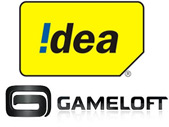 Idea Cellular has entered into a partnership with game publisherGameloft, with a view to provide users with more options to keep them entertained on the move. As is obvious, the collaboration will allow Idea subscribers access to multiple games developed by the said company. Idea Cellular has entered into a partnership with game publisherGameloft, with a view to provide users with more options to keep them entertained on the move. As is obvious, the collaboration will allow Idea subscribers access to multiple games developed by the said company.
The titles will be available for download through Gameloft’s official Game store as well as the Idea website. Over 130 million people who subscribe to the services of the network operator in question will benefit from this partnership. And those who opt for the Gameloft Club subscription will be the lucky ones to get access to new content developed by the gaming publisher.
The Club subscription has some more perks as well. The two companies have announced that these users will be given a chance to download a bonus game from either of the two aforementioned sources in the first month of their subscription.(Source: Mobiletor)
|
Uninor offers fixed-price scheme for Facebook, WhatsApp usage
11 March 2014
Uninor is offering what it claims is the telecom industry's cheapest access to popular social networks Facebook and WhatsApp, as Telenor's Indian unit aims to double its data users and revenue in 2014.
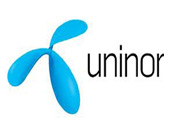 In line with the Norwegian parent's global strategy, Uninor is offering both apps at fixed prices, instead of measuring usage through megabytes and gigabytes. For example, an hour of unlimited Facebook app usage will cost 50 paise for a Uninor customer, while a day's usage will cost 1. WhatsApp will cost 1 for a day and 5 for the week. According to the company, this could lower a user's spending on those apps by about 50-60%. In line with the Norwegian parent's global strategy, Uninor is offering both apps at fixed prices, instead of measuring usage through megabytes and gigabytes. For example, an hour of unlimited Facebook app usage will cost 50 paise for a Uninor customer, while a day's usage will cost 1. WhatsApp will cost 1 for a day and 5 for the week. According to the company, this could lower a user's spending on those apps by about 50-60%.
"Internet is the way in which customers consume data and our approach will be to make that usage the cheapest among all operators," Morten Karlsen Sorby, Uninor's nominated CEO, said in a statement.
As much as 24% of the company's about 28 million subscribers spread across six circles of UP (West), UP (East), Bihar (including Jharkhand), Andhra Pradesh, Maharashtra and Gujarat are data users. The company launched the offer in Gujarat on Monday and will soon launch in Maharashtra and Goa, the circles where Uninor has seen the highest internet consumption over the past year. Uninor will subsequently launch the programme in its remaining circles. (Source: Economic Times)
|
|
|
|
|
|
|
|
|
 This is the second product for securing mobile communication that Vodafone has brought out in collaboration with its security partner G&D. The existing solution has been providing Vodafone customers with secure login access to corporate networks and the data cloud for some time now – there, too, G&D’s latest SIM technology provided the key.
This is the second product for securing mobile communication that Vodafone has brought out in collaboration with its security partner G&D. The existing solution has been providing Vodafone customers with secure login access to corporate networks and the data cloud for some time now – there, too, G&D’s latest SIM technology provided the key.
 The Samsung Galaxy S III mini Value Edition is now listed as available in Netherlands at various online merchants for EUR 180, which translates to roughly Rs. 15,300. The phone is however, not listed on Samsung's official Dutch site.
The Samsung Galaxy S III mini Value Edition is now listed as available in Netherlands at various online merchants for EUR 180, which translates to roughly Rs. 15,300. The phone is however, not listed on Samsung's official Dutch site.  There are regular complaints about call drops. Continuous 3G connectivity is still an issue, years after launch, even in top-tier cities like Bangalore and Hyderabad. Why is this so? Bangalore and Hyderabad are particular cases where we don't have spectrum and are using Airtel's network on an intra-circle roaming mechanism. That is why we took additional spectrum in 1800MHz in Bangalore in the latest auction.
There are regular complaints about call drops. Continuous 3G connectivity is still an issue, years after launch, even in top-tier cities like Bangalore and Hyderabad. Why is this so? Bangalore and Hyderabad are particular cases where we don't have spectrum and are using Airtel's network on an intra-circle roaming mechanism. That is why we took additional spectrum in 1800MHz in Bangalore in the latest auction.  "By any measure, the 2014 Mobile World Congress was a stunning success and we thank our attendees, exhibitors, sponsors and partners for their continued support," said John Hoffman, CEO, GSMA Ltd. "Beyond the number of attendees and participating companies, the continued expansion of the event to address key adjacent industry sectors demonstrates just how pervasive mobile is in our everyday lives and how integrated it is becoming in everything that we do. It's gratifying to be part of such a dynamic, exciting industry."
"By any measure, the 2014 Mobile World Congress was a stunning success and we thank our attendees, exhibitors, sponsors and partners for their continued support," said John Hoffman, CEO, GSMA Ltd. "Beyond the number of attendees and participating companies, the continued expansion of the event to address key adjacent industry sectors demonstrates just how pervasive mobile is in our everyday lives and how integrated it is becoming in everything that we do. It's gratifying to be part of such a dynamic, exciting industry."  Idea Cellular has entered into a partnership with game publisherGameloft, with a view to provide users with more options to keep them entertained on the move. As is obvious, the collaboration will allow Idea subscribers access to multiple games developed by the said company.
Idea Cellular has entered into a partnership with game publisherGameloft, with a view to provide users with more options to keep them entertained on the move. As is obvious, the collaboration will allow Idea subscribers access to multiple games developed by the said company. In line with the Norwegian parent's global strategy, Uninor is offering both apps at fixed prices, instead of measuring usage through megabytes and gigabytes. For example, an hour of unlimited Facebook app usage will cost 50 paise for a Uninor customer, while a day's usage will cost 1. WhatsApp will cost 1 for a day and 5 for the week. According to the company, this could lower a user's spending on those apps by about 50-60%.
In line with the Norwegian parent's global strategy, Uninor is offering both apps at fixed prices, instead of measuring usage through megabytes and gigabytes. For example, an hour of unlimited Facebook app usage will cost 50 paise for a Uninor customer, while a day's usage will cost 1. WhatsApp will cost 1 for a day and 5 for the week. According to the company, this could lower a user's spending on those apps by about 50-60%. 
